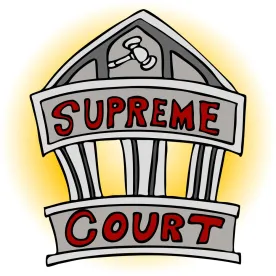In Apple Inc. v. Superior Court, No. H044133, 2017 WL 6275830 (Cal. App. Dec. 11, 2017), the California Court of Appeal, Sixth District, considered whether a plaintiff asserting a shareholder derivative lawsuit must plead demand futility with respect to the board of directors in place at the time of the filing of the amended complaint or the initial complaint, when the composition of the board has changed in the interim. The Court of Appeal, following the rule enunciated by the Delaware Supreme Court in Braddock v. Zimmerman, 906 A.2d 775 (Del. 2006), concluded that pleading of demand futility must be assessed with respect to the board of directors in place at the time the amended complaint is filed. This decision reflects the tendency by California courts to look to Delaware corporate law on issues related to shareholder derivative litigation.
Plaintiffs (purported Apple shareholders) brought this derivative action on behalf of Apple claiming that certain current and former members of the company’s board of directors breached their fiduciary duties. The lawsuit asserted that Apple pursued and enforced anticompetitive agreements with other Silicon Valley companies to prohibit the recruitment of each other’s employees. Plaintiffs alleged that Apple’s board of directors was aware of or tacitly approved Apple’s alleged practices. Apple is incorporated under California law.
The Superior Court sustained demurrers to plaintiffs’ initial complaint filed in September 2014, with leave to amend. Plaintiffs filed amended complaints in June 2015 and again in April 2016. Defendants demurred to the operative amended complaint on several grounds. Among them, defendants argued that plaintiffs failed to make a litigation demand to the company or to allege with particularity pursuant to Section 800(b)(2) of the California Corporations Code why such demand would be futile. Defendants argued that, based upon the rule in Braddock, plaintiffs were required to allege demand futility with respect to Apple’s then-current board as it existed in 2016 when then operative amended complaint was filed.
The Superior Court declined to apply Braddock, noting that Apple is a California corporation and failed to cite California authority supporting the argument that the relevant board was the board in place as of the time of the filing of the amended complaint. The court held that the operative complaint met the demand excusal requirement for at least half of the 2014 board.
Following a writ petition by defendants, the Court of Appeal concluded that the principles governing derivative litigation in California are consistent with Braddock. Thus, when a trial court determines that derivative claims are legally insufficient and grants leave to amend, the demand requirement must be reassessed against the disinterest and independence of the board of directors in place when the amended derivative claims are filed. Since the filing of the original action and the first amended complaint, certain Apple board members had changed. The Court concluded that the operative complaint failed to adequately plead excusal from the demand requirement as to a majority of the eight-member board in place in 2016. Accordingly, the Court of Appeal vacated the Superior Court’s order and entered a new order sustaining defendants’ demurrer to the operative complaint with leave to amend.
This decision clarifies the California demand futility pleading requirement where a demurer has been sustained and leave to amend granted. Where the complaint is not yet “validly in litigation,” demand futility must be reassessed at the time of the filing of the amended complaint. As such, any changes in the composition of a company’s board between the time of the filing of the initial complaint and amended complaint may impact the demand futility analysis and bear on a plaintiff’s standing to pursue a shareholder derivative lawsuit.



 />i
/>i

